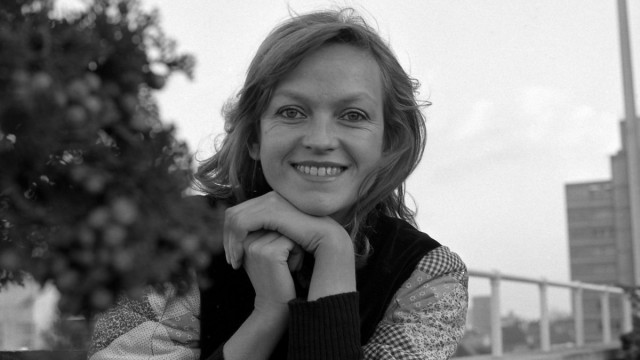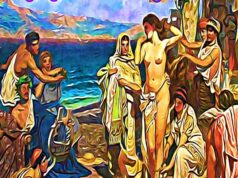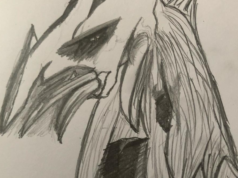Inspiring a music generation is hard enough but when you have been inspiring generations of music lovers for decades in some form or way accolades will and should be plentiful.
Annie Nightingale recently celebrated fifty years in broadcast journalism and that is a huge achievement. Championing seminal names in the music scene from The Beatles right through to the riveting London Grammar, she has been at the forefront of the UK music scene. The UK firmly stands at the very pinnacle of the global music scene and Annie Nightingale is without doubt one of the founders (rather like the late John Peel) who has been pivotal to the music scene on our shores.
Celebrating those years, an institution in its own right, Ministry Of Sound invited Annie Nightingale to condense her fifty years of musical knowledge and curate an eclectic triple cd compilation called Masterpiece. Covering music from The Beatles right through to music from the vibrant trap scene, Masterpiece is indeed that and shows why Annie Nightingale at 75, remains a huge force in the music scene.
Annie the raver!
From a very young age I just felt that there was this really big world out there-as clichéd as it sounds. I went to quite an academic school and the options at the time were if you were very bright and academic then you would go to Oxford-they did not see me like that I was a raver even when I was at school. So the other option was be secretary to someone or getting married and having kids-I did not want any of that.
Inspiration through a Roman Holiday
I was drawn to the movies and music.
I was inspired by a film called Roman Holiday (1953) to go into journalism. The film is a classic now with the huge names of Audrey Hepburn who played like this princess and Gregory Peck. He was this reporter and he seemed to have this swinging life which really resonated with me and inspired me to get into journalism.
Unlike today, I went into journalism at a time where it was not fashionable or popular and in fact I had a really hard time finding any place to study journalism or even work in it as a career. Eventually I found a course in Regent Street a step away from the BBC (but it never crossed my mind to even get involved with the BBC at that time). I stayed there for a year, discovering Soho-I did a lot of growing up at this time-it was in fact the best years of my life.
I then became a journalist, it was tough, difficult and some of it was very boring but there were other bits that were exciting but in the main I still did not feel I found what I really wanted to do and really satisfied me, I still felt there was something else.
Out of the blue, someone asked me to do something for local BBC. I sat in the studio with headphones on in the studio and it just felt right for me and that is how I found my path.
https://soundcloud.com/ministryofsound/masterpiece-annie-nightingale-mini-mix-1/s-mZ2F0
50 years of broadcast journalism: ‘Things have changed almost out of all recognition’
My 50 years in broadcast journalism is about television (initially) because back then Radio 1 would not have any women.
I worked in TV, magazines and newspapers and they never had a problem with my gender. So when I came up against these issues it was a surprise. At the time I was finding my way and when I realised I wanted to get into radio they scuppered me really because they did not want any women which really shocked me.
At the time there were absolutely no women. They told me that djs were substitute husbands and so having a woman on air would alienate their female listeners-I just thought that was absolute rubbish and crazy! Now look you have great female djs like Fearne Cotton and Annie Mac making huge waves and inspiring a new generation of female djs.
The Beatles gave the UK a musical culture
The Beatles were one of the most important bands if not the most important band to the UK music scene-they were huge.
The Beatles have a legacy which impacts virtually every artist and band that has followed them-the Beatles gave the UK a musical culture. Before that, the UK was like say Luxembourg is now. They did not necessarily have a globally recognised musical culture. Back then we had artists who were merely copies of US artists-that all changed when The Beatles came onto the scene and catapulted the UK from nonentities to this heaving, bustling country buzzing with an intoxicating energy-it really was something to experience.
The UK and I owe so much to them because they made it possible for so many people at that time to follow a passion like music. The Beatles actually knew that they were creating something hugely powerful and I know they knew it because Paul McCartney has told me that they were aware. After they set the ball rolling massive bands like; The Rolling Stones, Sex Pistols and so on and so on came but it all initially started with The Beatles.
Creating a Masterpiece
I have curated a compilation which I compiled with Heavenly Records a very cool label and I had Daft Punk on there when they were not as huge as they are now. This undertaking however was even bigger because it was a triple cd compilation which I have never done before.
I spent 7 months on the compilation actually working on it every day trying to track down tracks from all over the world to create something that was special. I have to say thanks to Ministry for really allowing me the scope. I asked what the remit was and how far could I go back and they said go back as far as you want to go? So I was like ‘great’! It started to then evolve and I got ‘yes’ from Paul McCartney, ‘yes’ from Rolling Stones and it began to take shape and it changed into something that was not a dance compilation but just a compilation full of great music spanning so many years including obviously music from now like trap music which I really like.
It was really important for me that this was not a compilation of the greatest hits with the obvious tracks on it. All of the tracks are just a little bit different to what people might expect. It was a really enjoyable project that went right to the wire with the whole team pushing to get the permission for the tracks.
Grime artists-the new Beatles?
In terms of the social culture they are the people who are moving things on, people like Skepta and Wiley are central to the genre. Skepta is inspiring people so much and he can and will have a great legacy that will inspire the next generation. The facts are the whole scene and all those in it are socially affecting culture and you need a lot of people to do that-it cannot be one person generally.
I went to Redbull and said that I would love to take all the grime artist and take them on a world tour to places like China, South America and really let people see what they are all about and while they said it was something that was not as strategically easy as it might seem they loved the idea as well.
I was actually inspired by what happened with The Beatles and I felt that if we could do it then, then why can’t we do it now?
London Grammar-‘are breath-taking’
London Grammar are wonderful and they are a classic band with classic tracks in many ways which is why I featured them on the compilation. They have gone quiet because I presume they are making their next album but I think that first album was amazing. They did a guest mix for my show on Radio 1 and it was breath taking and it is still raved about now. Almost every song on that album has been remixed. I think there is something minimal about their sound which lends itself to remixes they are really a band of huge talent.
I want to keep the flag flying for UK music
The BBC has been pivotal in creating a platform for artists because they have so many channels playing and nurturing popular culture, like 1Xtra, BBC Radio 1. I care about nurturing and encouraging new talent. I am very much in that role of like John Peel and I want to keep the flag flying for UK music and John Peel
MASTERPIECE: ANNIE NIGHTINGALE
TWITTER//FACEBOOK
CONTACT SEMPER













